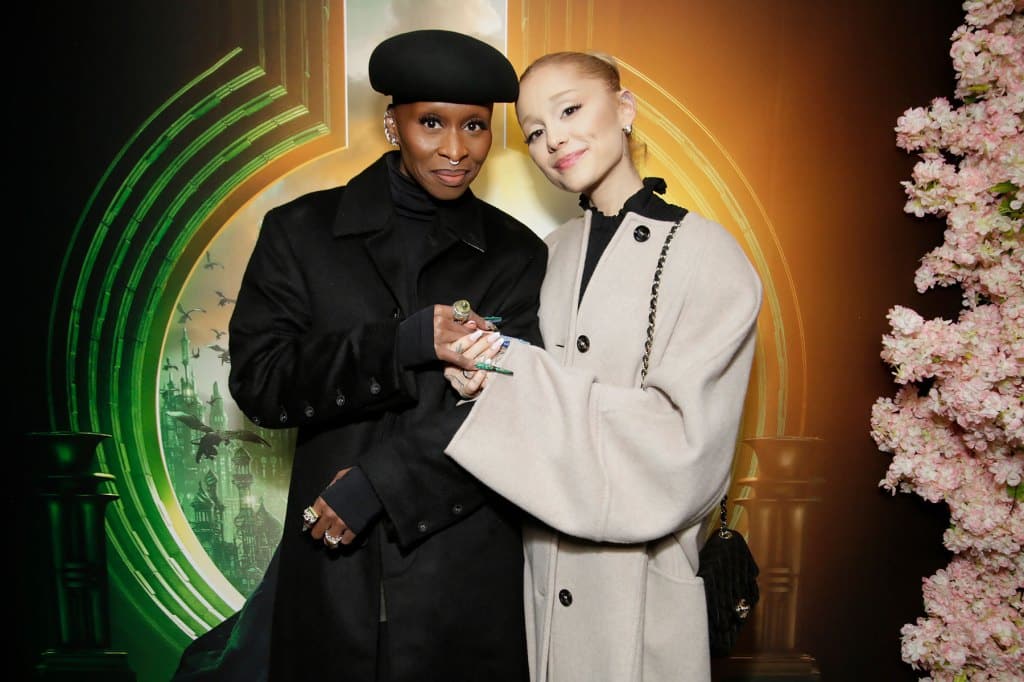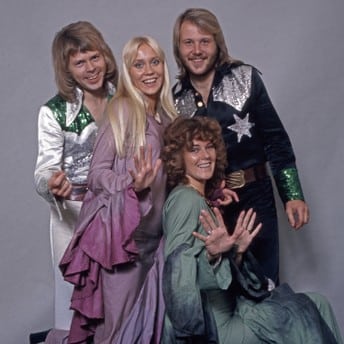Music
Page: 11
Trending on Billboard
LISA has been on a mission — and it comes to completion on Saturday, Nov. 29, when she launches as Fortnite Festival season 12’s Icon. As part of the Starlux Music Pass, the BLACKPINK singer-rapper’s collab will offer an in-game virtual headlining performance, as well as outfits, accessories and music from her solo debut album, Alter Ego, available as Jam Tracks.
“I’m always looking for fun, new ways to reach my fans, and I love when music, gaming and fashion mix together,” she tells Billboard. “Fortnite is the perfect place for all of that. I had so much fun creating my outfit designs, based on the different characters from my album Alter Ego, and making sure everything was personal and authentic!”
In fact, the star — who portrayed hotel employee Mook in season three of the HBO hit The White Lotus this year — took an extra step to make her contribution to season 12 of Fortnite Festival extra personal. And eagle-eyed fans may have caught the tribute when the trailer for the game’s new season dropped on Nov. 24.
“When Fortnite asked me what I wanted in this collab, I immediately thought of my cats,” LISA reveals. “My pets are such a big part of my life, and so the Back Bling is a little love letter to Louis! It’s my way of bringing a part of my family into Fortnite.”
In the trailer, her beloved furry pal rides on her back as LISA cruises around on a motorcycle, as well as when she’s showing off her moves on the main stage.
“I love how creative everyone gets with their collabs, and the best part is seeing people bring a piece of themselves into the game,” she says of other artists — Bruno Mars, Lady Gaga, Billie Eilish, Eminem and Mariah Carey, among many more — who have worked with Fortnite. “Ariana Grande included her pet as a Back Bling, which I thought was so cute!” (The “Thank U, Next” singer’s porcine pal, Piggy Smallz, was featured in 2021.)
LISA also details her level of involvement in this Fortnite collab and her thinking process behind her choices. “I got to work with the Fortnite team, from the art direction to song selection. For songs, I wanted a good mix coming from Alter Ego,” she shares of the music from the album, which debuted at No. 7 on the Billboard 200 in March. “’Rockstar” is for the attitude, ‘New Woman’ for a bold and confident energy, ‘FUTW (Vixi Solo Version)’ for a moody vibe.
“We also used the real dances in emotes, too,” she adds. “The FUTW and Rockstar emotes are very similar to the actual music videos. The Rockstar emote even has a motorcycle as part of it.”
The star notes that the collaboration really allowed her creativity to soar, and reveals one of her favorite parts of the collab. “What I love about Fortnite is that you can create anything,” she gushes. “I really wanted to show the bold attitude of Alter Ego for this collab. The FUTW emote was definitely a highlight for me! Adding those flash accents made every dance move feel exciting.”
Though LISA is far from the first musician to work with Fortnite, she is the first member of BLACKPINK to do so. And while the singer-rapper didn’t say who she’d like to be a Fortnite Festival Icon next, she does want to see all her bandmates do it — perhaps even as a group. She enthuses: “Those are my girls, and it’d be so cool to see all of us together in Fortnite!”
Source: Katie Flores / Getty
To many in the culture, TDE breakout artist Doechii has become one of the more polarizing figures in the music game for a bevy of reasons and conspiracy theories. Regardless of how some may feel about her, we’re willing to bet they wouldn’t turn down a lap dance from the Grammy award-winning artist.
During a recent performance at Tyler, The Creator-hosted Camp Flog Gnaw Festival, the “Anxiety” singer gave the crowd quite the impromptu moment to remember when she invited The Bear actress, Ayo Edebiri, onto the stage and surprisingly made her a part of the show while giving social media something to chirp about. Sitting the actress down on a school desk that many of us are familiar with, Doechii seductively crawled atop the table before straddling the chair and bouncing her booty off the desk while Edebiri held onto her legs to ensure she kept her balance through the performance.
It was hot, man.
While we’re sure Doechii haters will have something negative to say about the surprising performance or even attribute this to some kind of “Satanic” ritual amongst the Hollywood elites, we have no issues with D and Ayo giving fans something to remember, as we’re sure the people in attendance will not be forgetting this moment anytime soon. We know we won’t.
Check out Doechii give Ayo Edebiri a warm welcome to the Camp Flog Gnaw Carnival below, and let us know your thoughts about the moment in the comments section.
Trending on Billboard
Like magic, the soundtrack for Wicked: For Good materializes at No. 1 on the ARIA Albums Chart.
For Good is, of course, the sequel to Wicked, the soundtrack for which peaked at No. 3 on the ARIA Chart in December 2024, and bounces on the latest frame, up 30-15.
Co-stars Ariana Grande and Cynthia Erivo contribute vocals to many of the 11 new tracks, including “Every Day More Wicked,” “Wonderful” and the closer, “For Good”. Although not a Grande solo effort, Wicked: For Good marks the sixth time she has appeared at No. 1 on the ARIA Chart, following My Everything (from 2014), Dangerous Woman (2016), Sweetener (2018), Thank U, Next (2019) and Eternal Sunshine (2024), which holds at No. 29 on the current chart. For Erivo, it’s her first stint in the Australian chart penthouse.
Explore
See latest videos, charts and news
Also new to the tally, published Friday, Nov. 28, is Australian pop-punk band SoSo’s So Much For Second Chances, new at No. 4. “We are absolutely blown away,” reads a statement from the band. “This is something we are incredibly proud of and we owe it all to our SoSo Crew: you know who you are!”
Produced by Stevie Knight (Yours Truly, Stand Atlantic, Between You & Me), Second Chances could be closely followed by new music. “This means so much to us as an independent band,” the statement continues, “we can’t wait to share what we have cooking up next.”
Melbourne rockers The Smith Street Band bag a ninth top 50 album with Once I Was Wild, new at No. 14, while Midnight Til Morning are close behind with their debut EP, Afterglow, new at No. 16. The pop-punk outfit was formed during the Netflix competition series Building The Band. Despite being eliminated in the semis, the group has enjoyed international success, including sold-out shows in North America, the U.K. and Europe, and in Australia, the homeland of bandmates Conor Smith and Mason Watts. Midnight Til Morning are signed to and managed by Michael Chugg’s Chugg Music.
The Fab Four make another impression on the Australian chart as the fourth and latest instalment of the Beatles‘ Anthology series starts at No. 20. The first, Anthology 1, led the chart for two weeks in 1995, the year in which the original eight-part TV series aired. Anthology 2 hit No. 2 the following year and Anthology 3 peaked at No. 3 later in 1996. All four of the albums are packaged as the Anthology Collection, new at No. 32. According to ARIA, the Beatles have notched 14 No. 1s on the national albums chart.
Over on the ARIA Singles Chart, Olivia Dean retains top spot for a second week with “Man I Need,” which she performed at the 2025 ARIA Awards in Sydney, and again for a special open-air concert at Fleet Steps. The English singer’s former No. 1 album, The Art of Loving, enjoys a lot of love in these parts, lifting 4-2. Also, Dean’s “So Easy (To Fall In Love)” (up 5-4 ), “Nice To Each Other” (up 9-8) and “Let Alone The One You Love” (up 36-25) are all on the move, each improving to new peak positions.
The top debut this week belongs to K-pop boyband Stray Kids, with Do It. It’s new at No. 10, the group’s best chart performance in Australia, easily eclipsing the No. 64 peak for 2023’s Lalalala. Stray Kids have an Aussie connection: Felix was born in Sydney and Bangchan was born in Seoul, raised in Sydney.
Canadian singer and writer Tate McRae lands another top 20 start with “Nobody’s Girl,” at No. 19.
And finally, Tame Impala is, once again, the only homegrown artist with a single in the top 50, as “Dracula” dips 28-33.
Trending on Billboard
Eleven, Steve Harrington, Max Mayfield and all the favorites from Stranger Things are back in our lives, as the beloved sci-fi series rolls out for a fifth season.
Explore
See latest videos, charts and news
From today, Nov. 28, fans everywhere can also soak up tunes from the latest episodes.
The digital edition of Season 5, Volume 1 premieres today, and includes pop and rock classics by ABBA, Michael Jackson, The Psychedelic Furs, Tiffany and others.
Volume 2 will drop online Dec. 26, and Volume 3 will arrive Jan. 1, 2026, collecting all three volumes with additional material.
Then, on Friday, Jan. 30, 2026, the complete Stranger Things: Soundtrack from the Netflix Series, Season 5 will be available on CD, vinyl and red cassette configurations, through Legacy Recordings, the catalog division of Sony Music Entertainment. Colored vinyl formats include standard black, Amazon’s exclusive red smoke, Target’s exclusive blue smoke, Walmart’s exclusive orange marble, and the Sony Music Store’s marble yellow exclusive.
The three-stage release mirrors the fifth and final season of Stranger Things, which is staggered with three volumes, led off by the first four episodes which premiered Wednesday, Nov. 26.
Netflix gave fans a taste of things to come with the engrossing official trailer that debuted in October, and features a remix of Queen’s “Who Wants To Live Forever,” a tear-jerker that originally appeared in Russell Mulcahy’s ‘80s sci-fi action film Highlander.
The Duffer Brothers and two-time Grammy nominee and Emmy winner Nora Felder conceptualized and produced the soundtrack album, which can be pre-ordered here.
Since its first season in 2016, Stranger Things has taken millions back to the ‘80s, into the Upside Down, and, along the way, flourished as a cultural phenomenon.
Where the show has launched the careers of its young actors, and pushed several of its veteran cast into the spotlight, its creators have also found a sweet spot with its soundtrack. Season Four reenergized Kate Bush’s 1985 song “Running Up That Hill (A Deal With God)” into a global, chart-topping smash, and the use of Metallica’s “Master of Puppets” in a pivotal scene during the season finale powered the rock song into the Billboard Hot 100 for the first time.
Tracklist – Stranger Things: Soundtrack from the Netflix Series, Season 5, Vol. 1
1. “Rockin’ Robin” — Michael Jackson
2. “I Think We’re Alone Now” -– Tiffany
3. “Fernando” -– ABBA
4. “Mr. Sandman” — The Chordettes
5. “Pretty In Pink” — The Psychedelic Furs
6. “Sh-Boom” — The Chords
7. “Oh Yeah” — Yello
8. “To Each His Own” (Inspired by the Paramount Picture To Each His Own) — Freddy Martin & His Orchestra *
* Not included in Vinyl & cassette configurations
Trending on Billboard
Post Malone used his halftime spot at the Dallas Cowboys’ Thanksgiving home game Thursday night (Nov. 27) to pay tribute to Marshawn Kneeland, the late Cowboys defensive end.
Explore
See latest videos, charts and news
“We love you, 94,” Posty said near the end of his three-song medley at Arlington’s AT&T Stadium, referencing the number Kneeland wore during his two seasons with the Cowboys. “We love you.”
The “Rockstar” singer also sported a No. 94 pin on his blue and white satin jacket for the Cowboys’ duel with Kansas City Chiefs.
Kneeland died by a gunshot to the head earlier this month, at the age of just 24. His death is being investigated as a suicide.
A product of Western Michigan Broncos, the footballer earned second-team Mid-American Conference (MAC) honors in 2023, and, the following year, was selected by the Cowboys in the second round of the NFL draft.
For Posty, the high-profile gig was a triumphant homecoming. The celebrated hip-hop artist (real name: Austin Post) was raised in Grapevine, Texas, and his dad, Rich Post, was assistant director of food and beverage at the stadium from 2005 to 2019.
“I’m from Texas. I grew up a Cowboys fan and have been watching this halftime show for years,” Malone commented in a statement published on the Cowboys’ official site. “It’s a real honor to be part of the Red Kettle Kickoff with The Salvation Army and the Dallas Cowboys and help bring hope to so many people.”
For the big show, Posty powered through “Wrong Ones,” “Wow” and “I Had Some Help.”
Malone’s Thanksgiving thank-you might’ve done enough to lifted his beloved franchise, as the Cowboys ran out winners 31-28.
Post doesn’t pass on the opportunity to perform under the bright lights of the NFL. His previous football gigs include the Baltimore Ravens and Houston Texans’ Christmas Day show last year; he performed before the 2024 Super Bowl when he sang “America the Beautiful,” and earlier in the year he headlined the Super Bowl 59 YouTube tailgate concert.
See clips from Post Malone’s halftime performance below.

Trending on Billboard
It was no surprise that Jack White performed The White Stripes’ “Seven Nation Army,” a sporting anthem, during his halftime set on Thursday (Nov. 27) at the Detroit Lions’ annual Thanksgiving Day Classic at Ford Field.
The real surprise came with a guest appearance by fellow Detroit icon Eminem, who co-executive produced the event alongside his manager, Paul Rosenberg.
The superstar rapper, decked out in a hoodie and custom-made Lions jacket, electrified the sold-out crowd by joining White and his band halfway through their seven-minute set for a mashup of Em’s “Till I Collapse” with the White Stripes’ “Hello Operator,” a pairing that was sandwiched between White’s “That’s How I’m Feeling” and “Seven Nation Army.”
It was a first-ever onstage meeting between the two Detroit music standard bearers. It came in the wake of the White Stripes’ induction into the Rock and Roll Hall of Fame on Nov. 8, and also coincided with the 10th anniversary of the opening of White’s Third Man Records location in his hometown. Eminem was inducted into the Rock Hall in 2022.
White played a blue guitar for the occasion, while his rhythm section sported Lions attire. “I love you Detroit,” the rocker shouted as the performance came to a feedback-drenched conclusion. More than 400 Lions season ticket holders who volunteered to be part of the show rocked along in front of the stage.
Eminem and White — who each created special limited edition merchandise related to the game and halftime show — were well represented before the performance as well. The Ford Field PA blasted “Seven Nation Army” shortly before the Lions took the field, and White’s “Taking Me Back” during the time-out music in the first quarter. “Till I Collapse” was featured as hype music prior to kickoff.
The show marked the first event in a new three-year partnership between the Detroit Lions, Burbank-based Jesse Collins Entertainment — known for producing previous Super Bowl halftime shows — and Eminem and Paul Rosenberg. Eminem and Rosenberg also collaborated with the Collins organization on the June 2024 concert celebrating the opening of Michigan Central, which also featured a performance by White.
JCE executive VP Seth Dudowsky told Billboard that conversations about Eminem and Rosenberg joining the production team began near the start of the NFL season, and once on board White quickly became a focal point of the Thanksgiving halftime discussion.
“We talked about how do we put on a show that really represents the attributes and values of the city and are true to the Lions and true to what Eminem and Paul had established there,” Dudowsky said. “When you talk about those elements and those values, Jack White was a perfect artist to… represent rock ‘n’ roll and be on that stage and somebody who not only spans Detroit, but anybody who’s been in stadiums and at sports events has heard [‘Seven Nation Army’] at some point.”
The Lions also launched a new initiative with Feeding America with Thursday’s game.
Adding to the day’s hometown flavor was Grammy-winning gospel singer CeCe Winans, a Detroit native who flew in that morning from Nashville to perform the National Anthem.
“It’s an honor,” Winans told Billboard at Ford Field. “I grew up with seven brothers and a dad, so the Lions game was on every year. There were 10 of us so we couldn’t get all those tickets, so we watched on TV. To be able to be here to do the anthem is a lot of fun, and honor and amazing.”
The Lions game against NFC North division rival Green Bay Packers was the first of three NFL Thanksgiving Day games.
Trending on Billboard Cynthia Erivo opened the 2025 Macy’s Thanksgiving Day Parade with a breathtaking performance of “Feeling Good.” Standing on a small circular stage accompanied by a pianist, the 38-year-old Wicked: For Good star launched the annual New York City event on Thursday (Nov. 27) with a moving rendition of the classic song, made […]

Trending on Billboard HUNTR/X brought KPop Demon Hunters to the 2025 Macy’s Thanksgiving Day Parade. The fictional K-pop girl group — voiced by EJAE, Audrey Nuna and REI AMI — made its daytime television debut during the annual celebration in New York City on Thursday (Nov. 27). Accompanied by a giant balloon of the blue […]
Prosecutors charged three men Wednesday (Nov. 26) with murder in the death of 22-year-old Maria De La Rosa, who was shot over the weekend while sitting in a parked car in Los Angeles.
Explore
See latest videos, charts and news
De La Rosa, a Latin artist who performs under the name DELAROSA, was with two other people Saturday morning in the neighborhood of Northridge when three men came up to the car and demanded money, prosecutors said. Then, prosecutors said, they fired multiple rounds, hitting all three occupants.
De La Rosa later died at a hospital. The two other victims suffered critical injuries, prosecutors said.
“This was a ruthless and targeted attack that stole the life of a young woman and artist and inflicted profound lifelong trauma on her family and the two survivors,” LA County District Attorney Nathan Hochman said in a news release Wednesday.
A 27-year-old man was arrested the same day, and another 27-year-old man was arrested the next day. An arrest warrant has been issued for the third man, a 21-year-old. Attorneys for the first two could not be reached for comment.
All are from Northridge and were charged with one felony count of murder and two felony counts of attempted second-degree robbery.
DELAROSA has more than 40,000 followers on Instagram and released a single in August called, “No Me Llames,” which in English translates to “Don’t Call Me.” Under her most recent post on Instagram, many people acknowledged and commented on her death, including Jimmy Humilde, a founder of record label Rancho Humilde.
Her final Instagram post also teased new music. “Ocupada cocinando en el Stu 🎶👩🏻🍳no me llames 🪄🪞🐩 Ya es tiempo… GAME TIME BABY,” she wrote in Spanish, which translates to “Busy cookin in the Stu. don’t call me. It’s about that time.”
Trending on Billboard Training season’s not over just yet. Dua Lipa stars in the latest campaign for NBCUniversal as she hypes the women of Team USA ahead of the 2026 Milan Cortina Olympic Winter Games. The British pop star struts through a winter wonderland in the snowy streets of Milan and shows off her polyglot […]

 State Champ Radio
State Champ Radio 






